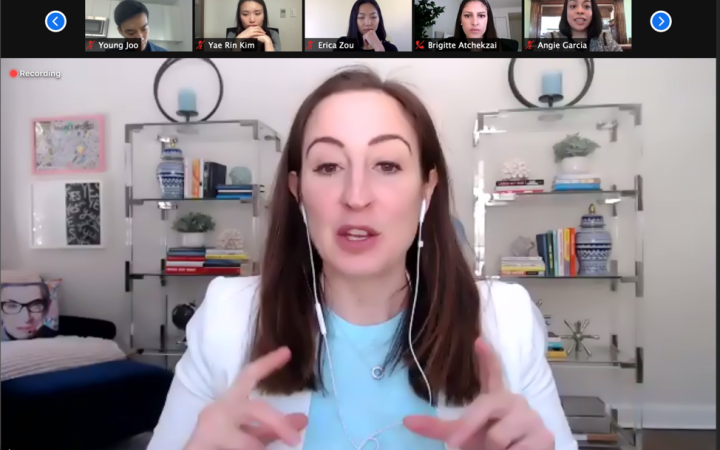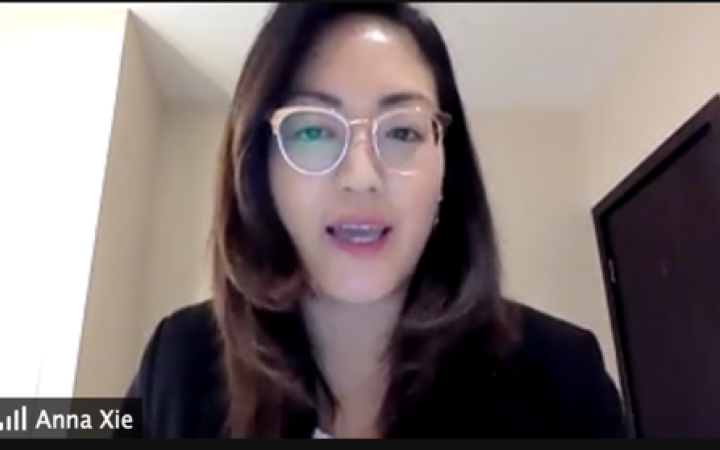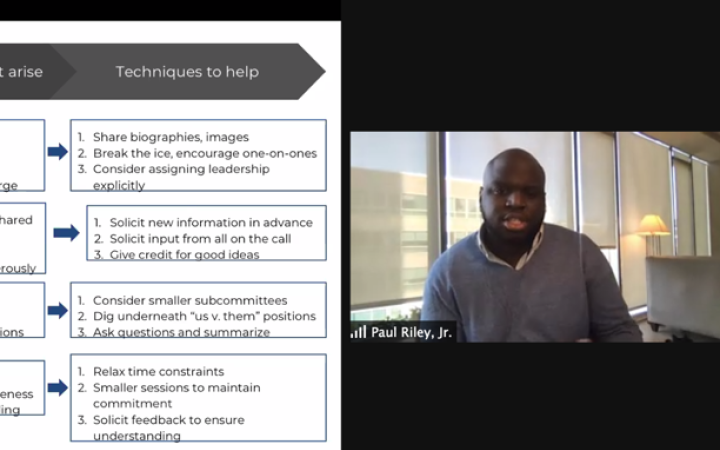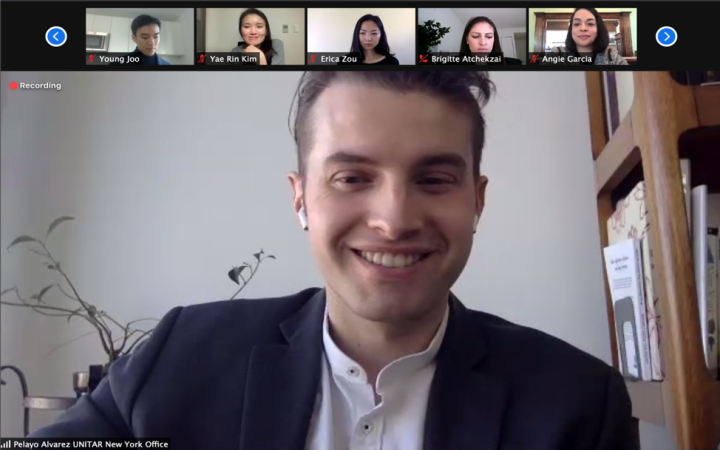26 February 2021, New York, USA (Virtual) - The United Nations Institute for Training and Research (UNITAR) New York Office, along with the Columbia Law School, hosted the “Conducting Successful Virtual Negotiations” workshop on Friday, 26 February 2021. This was the second session of the Spring 2021 Columbia Law School training series and was supported with funding allocated from the Swedish International Development Agency’s (SIDA) contribution to the UNITAR Strategic Framework Fund, under the programme ‘Leveling the Playing Field’ which focuses on the development of skills and knowledge of Least Developing Countries. Participants of all the sessions of the series will receive a certificate signed by the Dean of Columbia Law School, Gillian Lester and ASG, Executive Director, Mr. Nikhil Seth.
UNITAR Programme Coordinator, Mr. Pelayo Alvarez opened the second day of the training and welcomed 107 participants who joined from around the globe. He underscored the importance of virtual interaction in the pandemic-stricken world of today and introduced the workshop’s facilitator, Professor Alexandra Carter, Director of the Columbia Law School Mediation Clinic and author of ‘Ask for More: 10 Questions to Negotiate Anything’. Professor Carter provided introductory remarks on the theme of virtual negotiation and traced the origin of this workshop to the onset of the pandemic when the schools and offices were closing down last year in 2020. She then introduced her team at the Columbia Law School Mediation Clinic to discuss successful virtual negotiation at length.
Mr. Caeron Molis introduced the ice breaker of the day which posed the question “what challenges have you encountered in transitioning to working in a virtual environment?”. Some of the responses highlighted were internet blackouts, absence of personal contact, zoom fatigue/lack of concentration, inability/difficulty to ‘read’ the room and the absence of personal contact among others. Mr. Young Joo identified the challenges that virtual communication creates such as difficulty in reading feelings, daily challenges of working from home which can be disruptive, no real control over internet or phone disconnections and dealing with features such as mute and video settings require an extra effort etc. Moreover, participants are susceptible to distractions over social media.
Ms. Anna Xie highlighted text, audio and video call challenges along with increase in self-consciousness, zoom fatigue, eye strain and user errors. However, she stated that despite these challenges there are many tools for successful negotiations. Ms. Yae Rin Kim elucidated the tools like ‘managing the process’ which involves controlling the conditions, setting reasonable expectations for video and setting the speaking order and procedure. Ms. Jeeyoon Chung underscored the importance of self-identifying during calls and also letting people know at the very beginning of calls that they can unmute themselves and participate. It was emphasized that video helps in virtual conversation the best as it helps read the other side well. It is also advised to be mindful of accommodations as interpreters and closed captions help in encouraging participation. Asking the right questions (open or closed) also help in increasing the efficiency of such conversations.
Mr. Paul Riley Jr. explained the power of summarizing which consists of repeating the essence of what the person said, being clear concise and direct, confirming the accuracy of summary, finding commonalities and voicing shared concerns. Ms. Erica Zou talked about the importance of setting an agenda that signals everyone to stick to the key points, stay on schedule, focus on discussion and creates an efficient and more collaborative setting. Ms. Aita Seck explained the importance of acknowledgement and constructive behavior that makes participants feel appreciated and improves morale. Ms. Angia Garcia underscored building culture and trust which involves making the effort to indulge in small-talk, recognizing diversity and being identity-conscious. Ms. BrigetteAtchekzai spoke about making accommodations that result in participants feeling acknowledged recognize differences of experience and comfort and create an open forum for all to submit ideas and feedback.
This was followed by Mr. Riley introducing an interactive exercise pertaining to achieving goals via virtual collaboration involving 12 breakout rooms. The different smaller groups had to talk about problems that arise and techniques to help various goals like forming a new team, sharing information, negotiation and updating status. Following the discussions, the session ended with all the participants coming together to brainstorm and share the important points discussed. Mr. Riley summarized all the points.
Professor Alexandra Carter gave her closing remarks and thanked everyone for the engagement and interaction and remarked that sometimes communicating with many people at once is equivalent to a good workout session. Mr. Pelayo Alvarez thanked and invited everyone to the next session to be held on 15 March 2021.






